Nigerian President Buhari’s anti-corruption initiative is applauded, but economic troubles loom
According to a new decree by Nigerian President Muhammadu Buhari issued this week, all Nigerian federal revenue-generating institutions, including the notoriously infamous state-owned oil company, are directed to pay their revenues into a Treasury single account (TSA) instead of private bank accounts. Buhari took office in May, riding a wave of optimism after his pledge to root out corruption in the public sector. This new policy is another attempt by his regime to foster transparency and fight corruption by harmonizing the revenue accruals and is projected to cause more than $6 billion of public funds to be transferred from local banks to the central bank.
While the initiative is lauded by some, this anti-corruption measure has also raised concerns that such large outflows could worsen the credit crunch facing the country’s financial sector. Last week, JPMorgan Chase & Co. excluded Nigeria from its local-currency emerging-market bond indexes after the central bank’s restrictions prompted investor concerns about a shortage of liquidity. Earlier this week, President Buhari said he opposed a weakening of the naira and endorsed the central bank’s policy of restricting foreign exchange trading. Central Bank Governor Godwin Emefiele has rejected claims of lack of liquidity and assured that, if needed, he is ready to inject liquidity into the interbank market.
Presidential guard seizes power in coup in Burkina Faso
On Wednesday, the military arrested interim President Michel Kafando, Prime Minister Isaac Zida, as well as a number of other ministers, in a coup led by the members of the presidential guard, also known as the Presidential Security Regiment (RSP). According to the announcement on local media channels, the transitional government has been dissolved and the interim president is no longer in power. Kafando, Burkina Faso’s former ambassador to the United Nations, had been chosen to lead the political transition after former President Blaise Compaoré’s resignation in a popular uprising last October.
Curfew was declared in the capital city on Wednesday evening after heavy gunfire. A close ally of Compaoré, General Gilbert Diendéré, has been named the country’s new leader. The coup, spurred by the electoral code that blocked members of the former president’s party from taking part, has taken place just weeks before the national elections scheduled for October 11. On Thursday, troops stamped out a protest condemning the coup, killing at least 3 people and injuring over 60.
The African Union, Economic Community of West African States (ECOWAS), U.N., and U.S. have issued statements strongly condemning the actions and urging the immediate release of hostages. According to an announcement this morning, Kafando has now been freed from military custody.
Annual U.S.-South Africa strategic dialogue underscores “healthy and active” partnership
South African International Relations and Cooperation Minister Maite Nkoana-Mashabane led a national delegation to Washington, D.C. this week to conduct bilateral talks with senior U.S. officials as part of the annual U.S.-South Africa strategic dialogue. The discussions between the two nations focused on three core pillars of cooperation, including regional and global security, trade and investment, and public health. At a press conference on Wednesday, Minister Nkoana-Mashabane and U.S. Secretary of State John Kerry summarized the dialogue, highlighting the “very strong bonds of political, economic, and social cultural relations between our two countries,”noting in particular the U.S. and South Africa’s “growing economic ties” exemplified by $20 billion in two-way trade and the 600 American companies in South Africa employing more than 100,000 local workers.
Relatedly, at side talks in South Africa this week, South African and U.S. trade negotiators made a breakthrough agreement resolving an ongoing dispute over U.S. poultry exports to South Africa. At Wednesday’s press conference Minister Nkoana-Mashabane confirmed that South Africa would resume importing U.S. poultry by the end of the year, calling it “a done deal.”
The Brookings Institution is committed to quality, independence, and impact.
We are supported by a diverse array of funders. In line with our values and policies, each Brookings publication represents the sole views of its author(s).

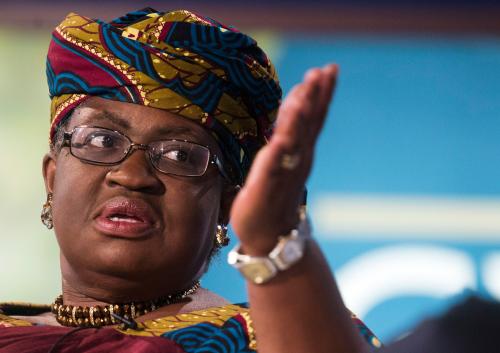
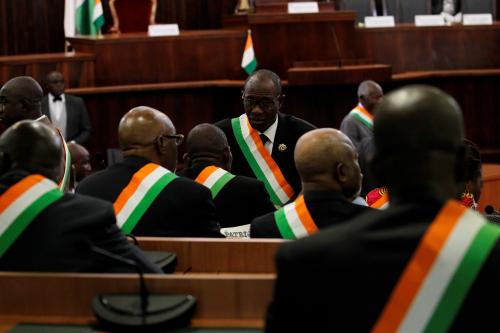
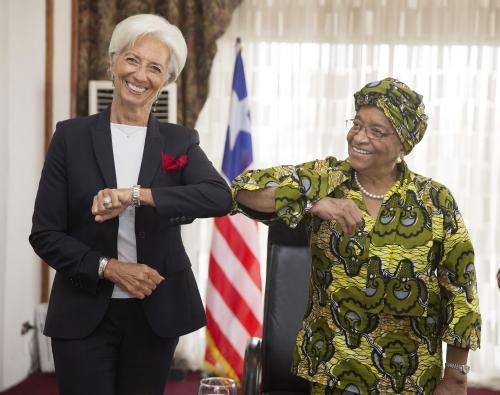
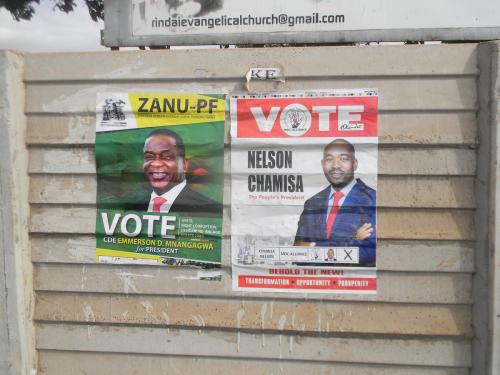
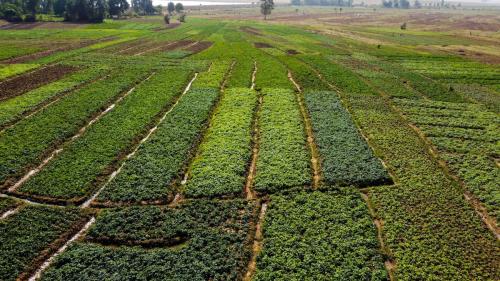

Commentary
Africa in the news: Buhari steps up transparency, Burkina Faso faces coup, and U.S. and South Africa strengthen ties
September 18, 2015